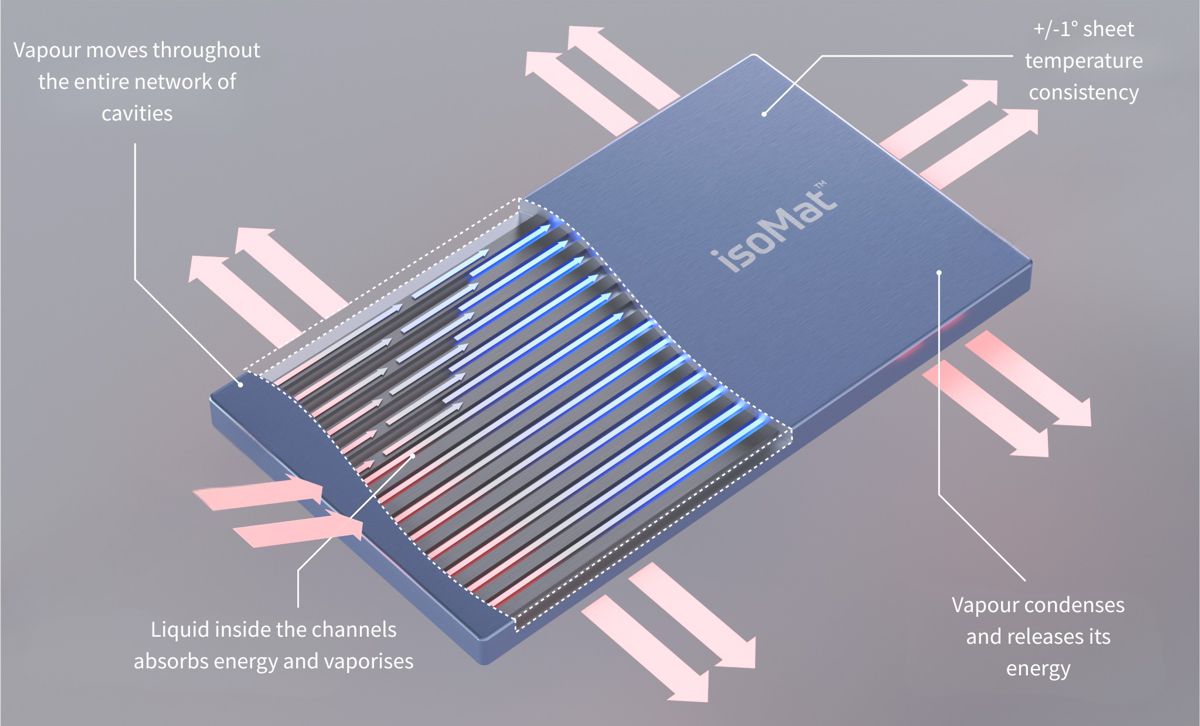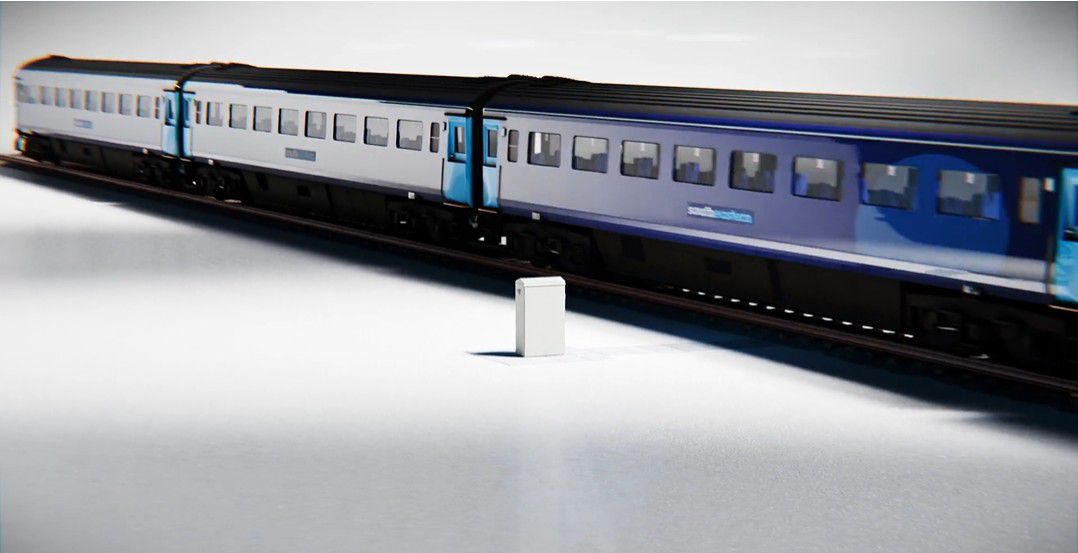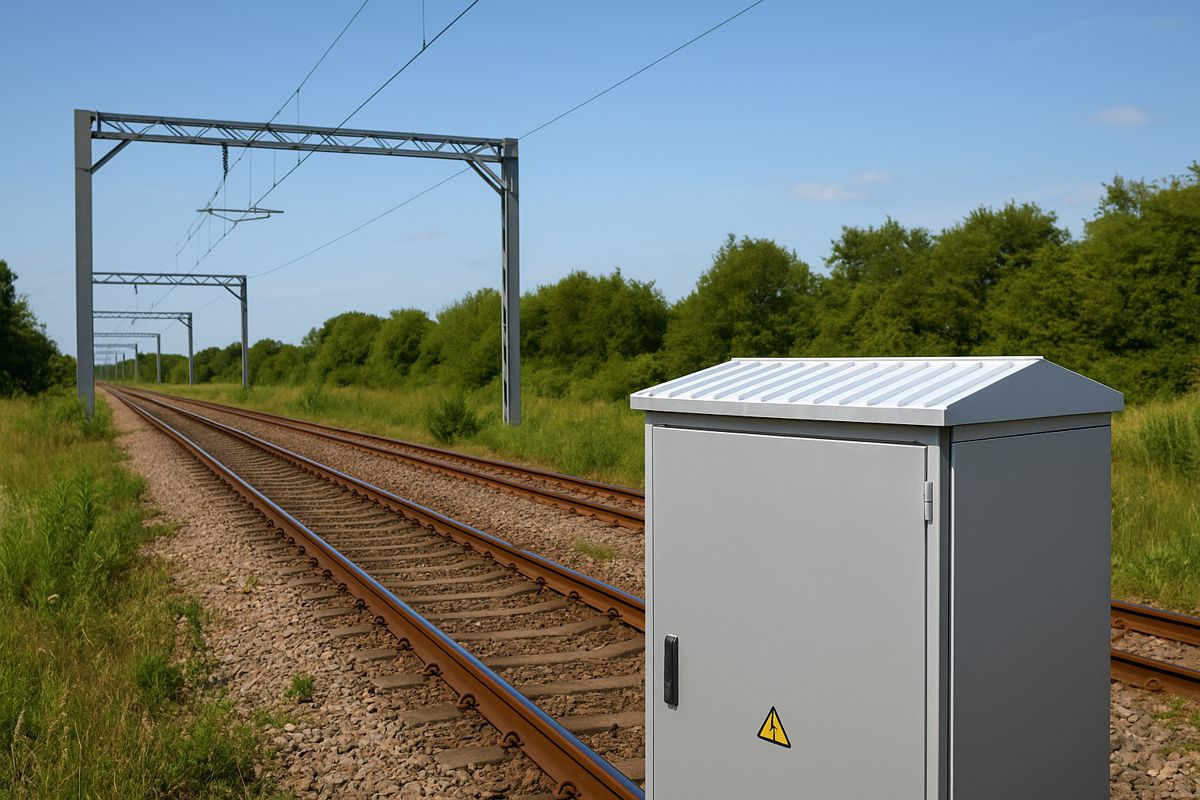IsoMat Cooling Innovation Helping South Eastern Railways Beat the Heat
Britain’s railway network has long faced the challenge of maintaining operational efficiency during extreme weather. Hot summers can wreak havoc on critical signalling infrastructure, especially in locations where internal cabinet temperatures soar beyond 70°C.
This not only risks system failures but also disrupts passenger and freight services, leading to delays, cancellations and costly repairs.
To tackle this growing problem, South Eastern Railway has joined forces with UK-based green technology start-up Flint Engineering. Their mission: deploy Flint’s innovative IsoMat thermal management system on the Tonbridge to Hastings line, creating a more resilient network ready to face rising temperatures.
A Passive, Maintenance-Free Solution
At the heart of this collaboration is IsoMat – a patented, passive heat exchanger that requires no electricity, no moving parts and zero maintenance. Mounted on the roof of signalling cabinets, it transfers thermal energy thousands of times more efficiently than copper or aluminium alone.
The design features a flat aluminium sheet with a sealed internal network of channels containing a small amount of liquid. When the cabinet heats up, the liquid rapidly evaporates, carrying the heat away to cooler areas of the panel where it condenses and releases the energy. This cycle repeats almost instantly, resulting in dramatic cooling effects.
Trials have demonstrated peak temperature reductions of more than 21% on the hottest days, ensuring electronics remain operational even in heatwave conditions. Installation is quick too – just two people can fit a unit in under an hour without altering the cabinet.

Scaling Up After Successful Trials
Following a successful pilot programme, South Eastern Railway is rolling out IsoMat across ten of Kent Route’s highest-risk cabinet locations this summer. The aim is to extend deployment in time for summer 2026, covering more locations vulnerable to heat-related failures.
This project forms part of a wider push by Network Rail to explore sustainable solutions for climate resilience, including passive cooling technologies. As with all major rollouts, future adoption will go through Network Rail’s standard procurement and evaluation processes to ensure fair competition.
David Davidson, Chief Operating Officer for South Eastern Railway, emphasised the importance of such innovations: “As extreme weather events become more common, we need innovative solutions to protect our infrastructure, and most importantly keep our passengers and freight customers on the move. Flint’s IsoMat technology provides a simple, effective solution to a complex problem, helping us maintain service reliability even during heatwaves without requiring power, maintenance or complicated installation procedures.”
Engineering for Climate Resilience
Mark Robinson, CEO of Flint Engineering, sees this as the perfect opportunity to demonstrate the IsoMat’s potential: “Our partnership with Network Rail represents a perfect application of our technology where it can make a real difference to critical infrastructure. The IsoMat demonstrates how innovative engineering can address climate resilience challenges while delivering significant operational benefits. This collaboration highlights exactly the kind of practical applications we envisioned when developing this breakthrough technology.”
The approach is simple yet revolutionary. With climate change causing more frequent and intense heatwaves across the UK, investing in low-energy, sustainable cooling systems like IsoMat could be a game-changer for public transport and beyond.
Network Rail’s Wider Climate Adaptation Strategy
Network Rail oversees 20,000 miles of track, 30,000 bridges, tunnels and viaducts, and thousands of signalling points. With nearly five million passenger journeys and over 600 freight trains daily, the pressure to maintain reliable services is immense. Heat-induced cabinet failures threaten to undermine these operations, making the search for effective cooling solutions a high priority.
The IsoMat trial feeds into a broader climate adaptation strategy. Network Rail is actively pursuing innovative, sustainable solutions to ensure the railway can withstand both heatwaves and other extreme weather events. By integrating passive cooling technologies, they hope to enhance operational resilience without significantly increasing energy consumption.

Multi-Industry Potential
While IsoMat is proving its worth in railway signalling, its applications reach far beyond the tracks. Flint Engineering’s technology can be adapted for:
- Electric vehicle battery optimisation – maintaining safe and efficient operating temperatures.
- Commercial refrigeration – reducing energy use while improving cooling efficiency.
- Sustainable building climate control – lowering reliance on active cooling systems.
Founded in 2012 and based in East Sussex, Flint Engineering has focused its R&D on revolutionising thermal energy management. Its patented Isothermal Energy Management System (EMS) is up to 5,000 times more efficient at transferring heat than conventional materials, setting new benchmarks in energy efficiency.
Industry Interest on the Rise
The commercial production of IsoMat begins this year, with strong interest emerging from markets in the UK, North America and the Middle East. As infrastructure owners and operators worldwide grapple with climate change, the need for robust, low-maintenance cooling technologies is only set to grow.
For South Eastern Railway and Network Rail, the benefits go beyond just avoiding disruptions. Improved reliability means better passenger satisfaction, reduced operational costs and a stronger reputation for service resilience.
Staying Ahead of the Heat
The deployment of IsoMat technology marks a proactive step in protecting critical infrastructure from the effects of climate change. By investing in passive, sustainable solutions today, the UK rail industry is future-proofing its network against tomorrow’s challenges.
In the long run, it’s not just about surviving the heat – it’s about thriving despite it, keeping passengers, freight and the wider economy moving whatever the weather.





























